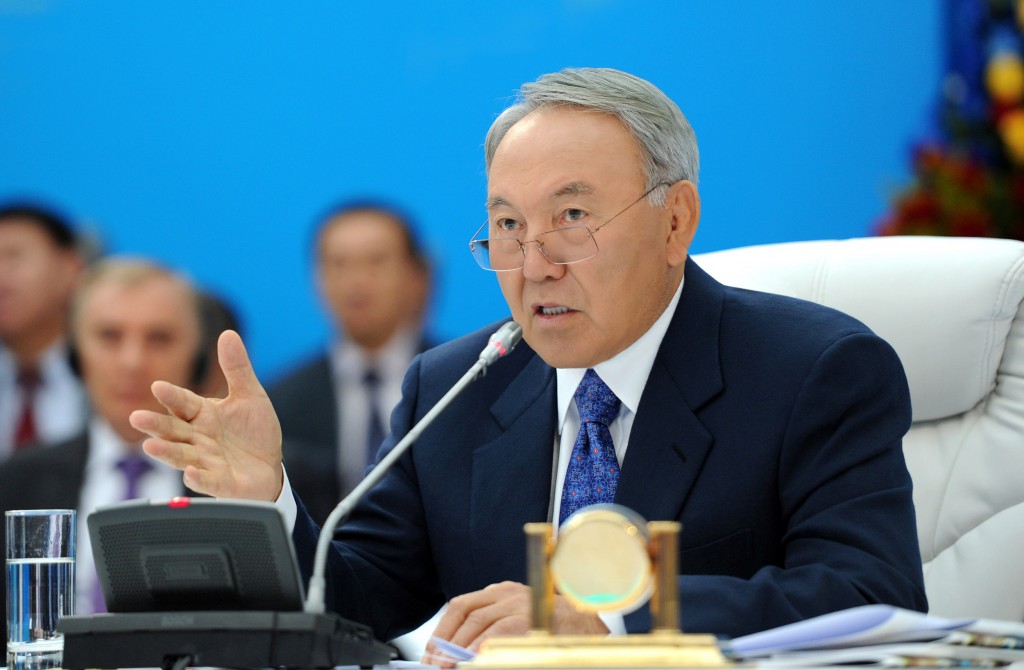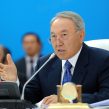
Nazarbayev Embarks on Foreign Intelligence Reform
Publication: Eurasia Daily Monitor Volume: 6 Issue: 46
By:

On February 17 Kazakh President Nursultan Nazarbayev issued a decree ordering the government to set up the Syrbar foreign intelligence agency. The presidential press service told journalists that Syrbar would be directly subordinate to the president. By the same decree, the Barlau foreign intelligence service created in 1998 was dissolved. In essence, the creation of the new intelligence organization, Syrbar, amounts to a radical reform of Barlau under an entirely new guise and the total control of the president. Nazarbayev removed Omirtai Bitimov, the long-serving director of Barlau and an experienced intelligence officer, from his post. Early on, Barlau was considered an independently operating intelligence body, which played a crucial role in attracting foreign investment into the oil sector of the Kazakh economy and in stemming the spread of religious extremism from Kazakhstan’s Central Asian neighbors. Barlau was later placed under the strict control of the National Security Committee (KNB) and lost most of its independent decision-making authority.
Presumably, Nazarbayev was frustrated by Barlau’s repeated failure to show its effectiveness within the KNB structure. Barlau intelligence officers made futile attempts to obtain the extradition from Austria of Rakhat Aliyev, the former deputy chief of the KNB and Nazarbayev’s son-in-law, who fled the country in 2007 after making scandalous public statements about Nazarbayev and his family. Then Alnur Musayev, the former KNB chief, followed Aliyev’s example and sought political asylum abroad (Aikyn, February 5).
On February 6, in a move highly embarrassing for the Nazarbayev regime, more than 200 Kazakh asylum seekers in the Czech Republic staged a protest demonstration in Prague. They opposed the Czech government’s intention to extradite them to Kazakhstan, fearing that they would be persecuted and jailed on charges of religious extremism. Followers of unorthodox Islamic religious groups came to the Czech Republic from Kazakhstan, allegedly fleeing persecution for their beliefs.
Obviously, by thoroughly reforming the foreign intelligence service and making it fully under his control, Nazarbayev is trying to ward off dangers from dissidents abroad and to consolidate his power. At a recent session of the Security Council Nazarbayev made clear his plans to introduce changes in the National Security Strategy for the 2007 to 2012 five-year plan, "taking the current situation into consideration." That, it seems, was a prelude to setting up the new intelligence agency independent of the National Security Committee, which was discredited by Aliyev and his associates. Sat Tokpakbayev, the former head of the KNB and a member of parliament, believes that Syrbar should focus primarily on counterterrorism activities rather than persecution of the regime’s political opponents abroad (Aikyn, February 20).
Nazarbayev’s foreign intelligence reform triggered a mixed reaction in Moscow. Russian foreign policy analyst Yevgeni Voiko thinks Nazarbayev’s decision was prompted by Kazakhstan’s growing rivalry with Russia for European energy markets, while other experts hope that Kazakhstan will expand cooperation with the Russian Federal Security Service (Vzgliad, February 18).
There has never been trust between the Russian and Kazakh security and defense bodies. Nevertheless, there are hopes for closer cooperation between the two intelligence services. In fact, all the structures within the National Security Committee of Kazakhstan, including the Arystan (Lion) special task force, the military intelligence group, and similar Interior Ministry units, were modeled after Russian security forces. Formally operating independently, the Kazakh security services have actually been influenced by Russia’s foreign intelligence policy since the early 1990s. Meeting in Almaty in 1993, the heads of the intelligence services of Commonwealth of Independent States (CIS) countries signed an agreement that included sharing intelligence information and prohibiting the gathering of intelligence on the other signatories’ territories. Nazarbayev did not miss an opportunity to demonstrate his willingness to foster a partnership with Russia in the security area. At the Dushanbe summit of the CIS in October 2007, it was Nazarbayev who pushed Sergei Lebedev, the chief of Russia’s foreign intelligence agency, to the post of executive secretary of CIS states.
The security partnership between Kazakhstan and Russia may be regarded as part of their traditionally strong military ties. Moscow is likely to use this relationship to press Nazarbayev for a security alliance against the West. However, Kazakhstan, concerned over the vulnerability of its own security, has gradually begun to squeeze Russian-speaking officers out of the security services, while expanding its ties with educational centers in the United States and Turkey for training Kazakh security officers.
It remains to be seen whether the new-born foreign intelligence agency will come up to standard. Amanzhol Zhankuliev, 57, the director of Syrbar, is a career diplomat who has served as Ambassador to Turkey, France, Switzerland, and the United Nations. The enigmatic Zhankuliev faces a Herculean task of reforming the Kazakh foreign security service. He will undoubtedly use his diplomatic skill and knowledge of the countries where he served; but will the intelligence service under his guidance serve the real security interests of the country or merely become a tool in the hands of the president?




